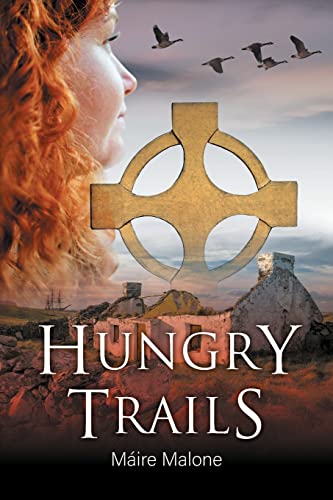Hungry Trails
This is the story of a family’s experience of Irish immigration to the New World during the Great Famine. In 1846, Julie Foley’s family tries to salvage their potato crop. Initially they are able to eat one meal a day thanks to family friends who are willing to share, but that doesn’t last. They are forced to work on the roads to earn relief from the government. Julie and her father spit on the policemen’s boots who come to evict them from their home. Forbidden to shelter with neighbors, their only choice is to emigrate.
After a difficult voyage to Montreal on a coffin ship, nuns aid them on arrival, finding them clothing and a temporary place to live. Her father and brothers find jobs doing manual labor; Julie gets work as a maid. She had a rudimentary education from a hedge school back in Ireland, and longs to parlay that into becoming a teacher. But after her mother dies, her father has a stroke, and having to keep house for the remaining family, how will Julie ever find the money or time to further her education?
The story will enlighten the reader on conditions in Ireland during the famine and what it was like to be an immigrant to Canada. The author lapses into info dumps in certain passages, but I still liked learning about the period. Julie is a sympathetic character; the reader will root for her. I expected the characters to encounter more anti-Irish prejudice than is depicted; for example, Julie’s rich employer has a difficult reputation, but proves to be otherwise. But perhaps my expectation sprang from a lack of knowledge about Canadian history. Recommended especially to readers descended from immigrants who wonder what life may have been like for their ancestors.










